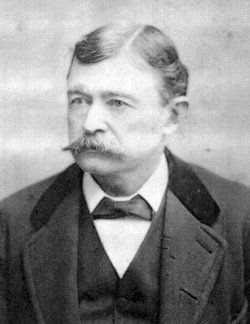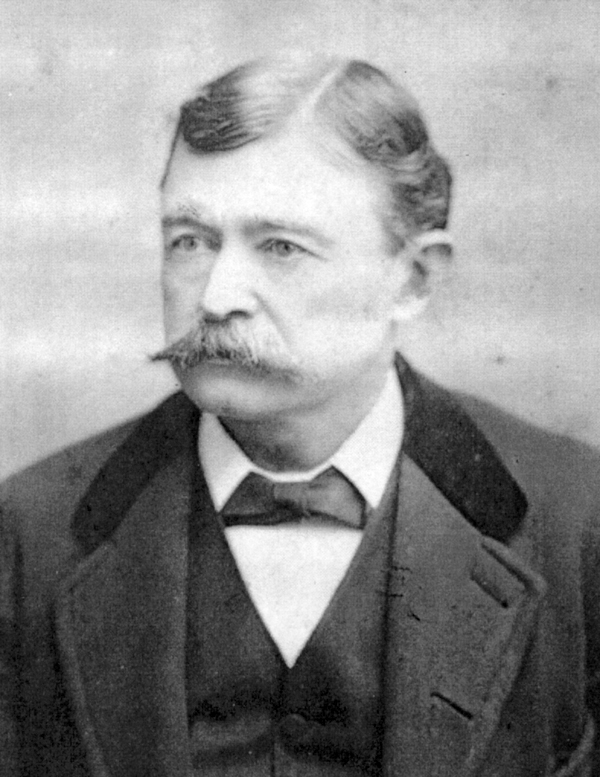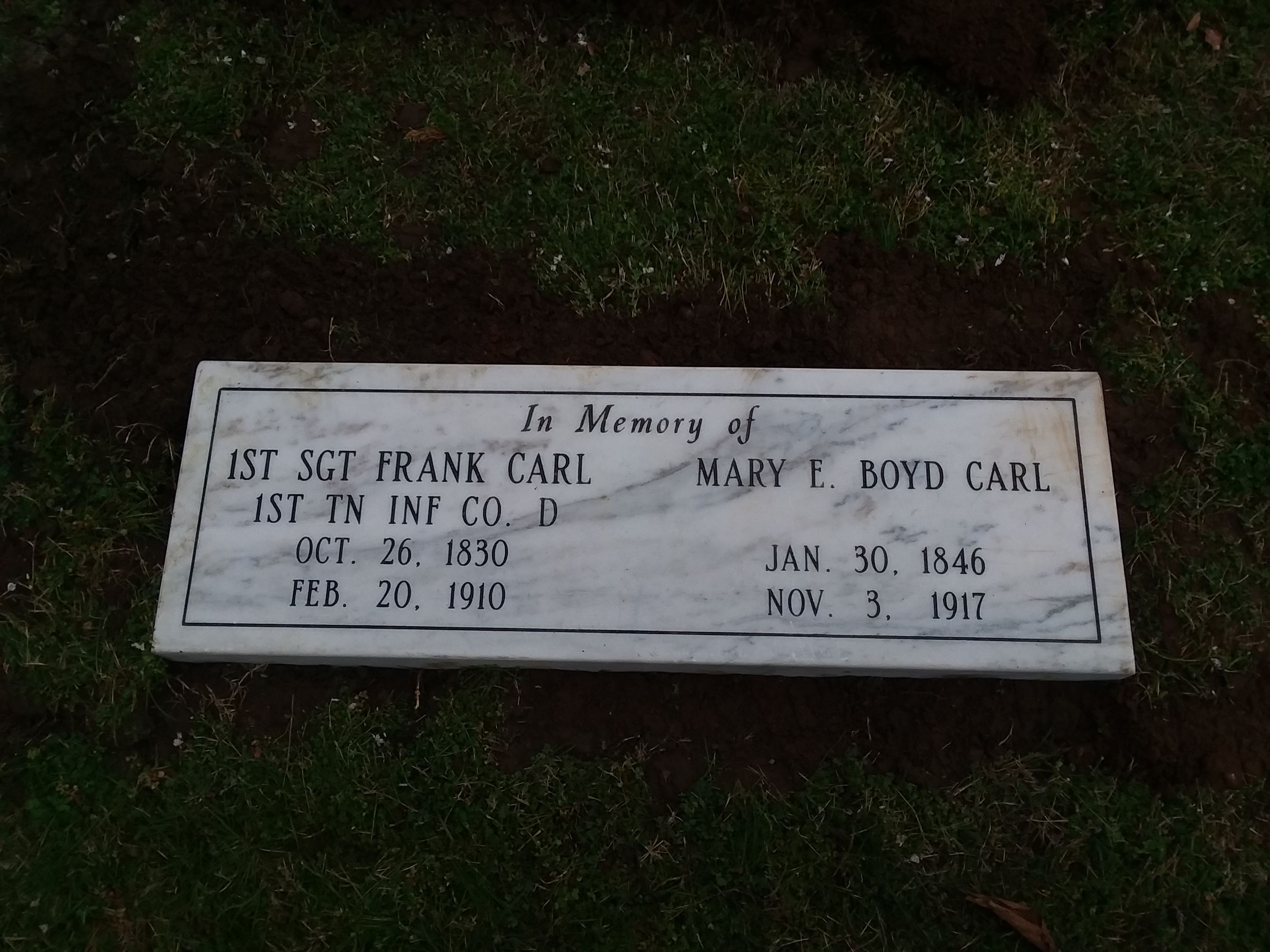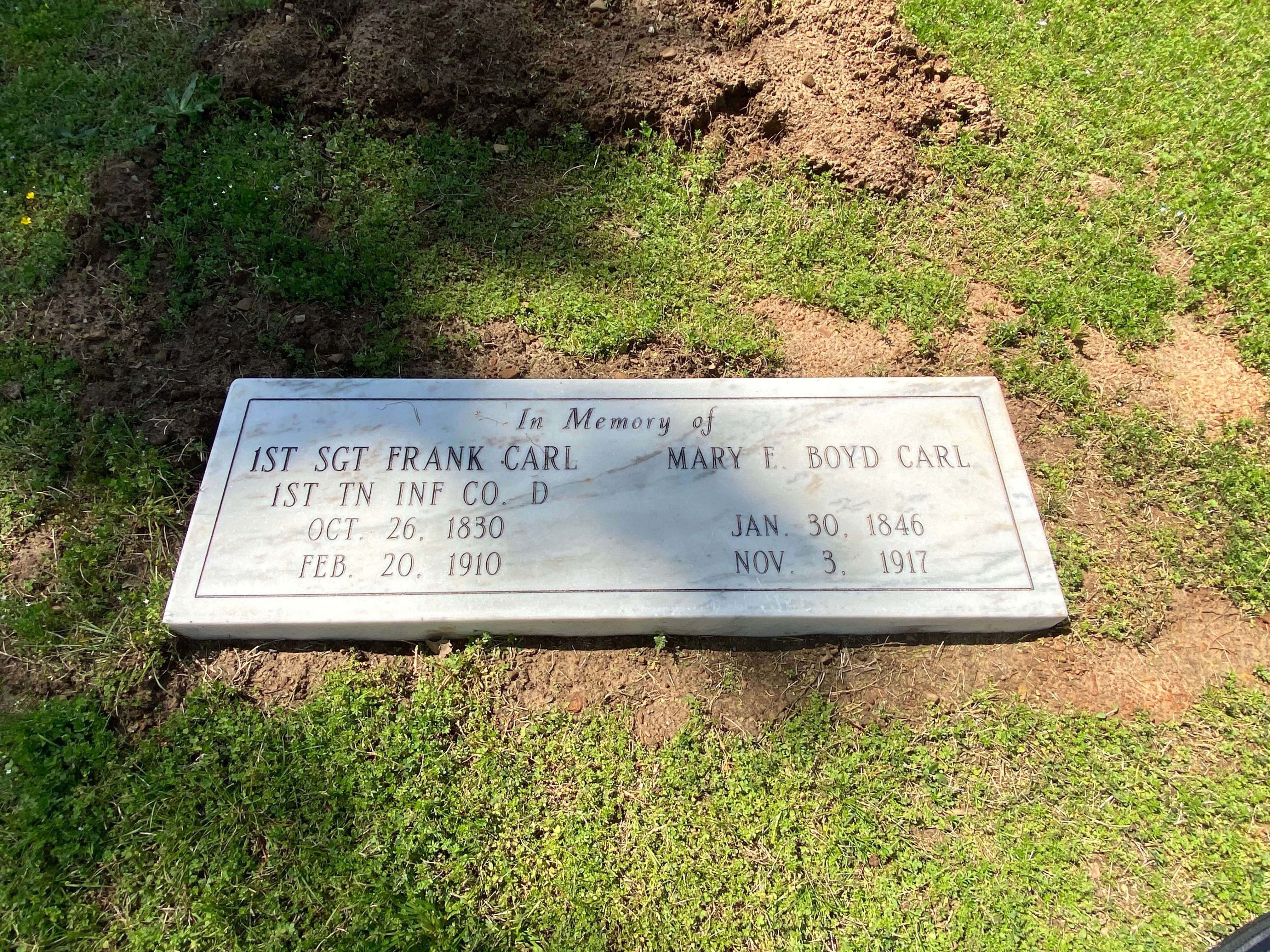Broadfoot's 'Confederate Military History, Vol. XIV' states:
'Frank Carl, of Little Rock, a veteran of the First regiment, Tennessee infantry, was born in Williamson county, middle Tennessee, in 1831, and entered the Confederate service in May, 1861 as a private in Company D, First regiment Tennessee infantry, then commanded by Col. George Maney, afterward distinguished as a brigade commander. He went with his regiment to West Virginia and served under Gen. R. E. Lee in the Cheat Mountain campaign and under Stonewall Jackson in the winter campaign against Bath and Romney. Then Maney and his men returned to Tennessee, and afterward were distinguished in all the battles of the army of Tennessee from Shiloh to Bentonville. Private Carl fought at Perryville in the Kentucky campaign, was wounded in the right leg by a piece of shell at Murfreesboro, participated in the battles of Chickamauga and Missionary Ridge, and in the spring and summer of 1864 fought from Dalton to Atlanta; in the fighting of July 21st, before Atlanta, receiving a wound in the neck. After a month's service in the trenches at Atlanta, he took part in the battle of Jonesboro, and in the subsequent movements of Hood's army in north Georgia and Alabama and Tennessee, receiving a wound in the left knee in the famous battle of Franklin, November 30th. Accompanying the army to the Carolinas early in 1865 he was taken with pneumonia and left in hospital at Salisbury, N.C., where he was captured by Stoneman's cavalry, April 10th, the day following the surrender of General Lee's army. Being sent to Camp Chase, Ohio, he was held there as a prisoner of war until June 19th. Upon his release he returned to Tennessee, and in the fall of the same year became a citizen of Arkansas. he was engaged in the cotton and grain trade at Augusta until 1870, and then removed to Little Rock, where he had a successful business career until his retirement in 1891.'
Broadfoot's 'Confederate Military History, Vol. XIV' states:
'Frank Carl, of Little Rock, a veteran of the First regiment, Tennessee infantry, was born in Williamson county, middle Tennessee, in 1831, and entered the Confederate service in May, 1861 as a private in Company D, First regiment Tennessee infantry, then commanded by Col. George Maney, afterward distinguished as a brigade commander. He went with his regiment to West Virginia and served under Gen. R. E. Lee in the Cheat Mountain campaign and under Stonewall Jackson in the winter campaign against Bath and Romney. Then Maney and his men returned to Tennessee, and afterward were distinguished in all the battles of the army of Tennessee from Shiloh to Bentonville. Private Carl fought at Perryville in the Kentucky campaign, was wounded in the right leg by a piece of shell at Murfreesboro, participated in the battles of Chickamauga and Missionary Ridge, and in the spring and summer of 1864 fought from Dalton to Atlanta; in the fighting of July 21st, before Atlanta, receiving a wound in the neck. After a month's service in the trenches at Atlanta, he took part in the battle of Jonesboro, and in the subsequent movements of Hood's army in north Georgia and Alabama and Tennessee, receiving a wound in the left knee in the famous battle of Franklin, November 30th. Accompanying the army to the Carolinas early in 1865 he was taken with pneumonia and left in hospital at Salisbury, N.C., where he was captured by Stoneman's cavalry, April 10th, the day following the surrender of General Lee's army. Being sent to Camp Chase, Ohio, he was held there as a prisoner of war until June 19th. Upon his release he returned to Tennessee, and in the fall of the same year became a citizen of Arkansas. he was engaged in the cotton and grain trade at Augusta until 1870, and then removed to Little Rock, where he had a successful business career until his retirement in 1891.'
Family Members
Sponsored by Ancestry
Advertisement
Advertisement













